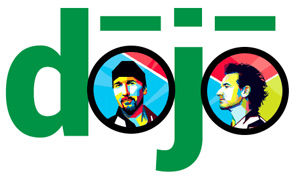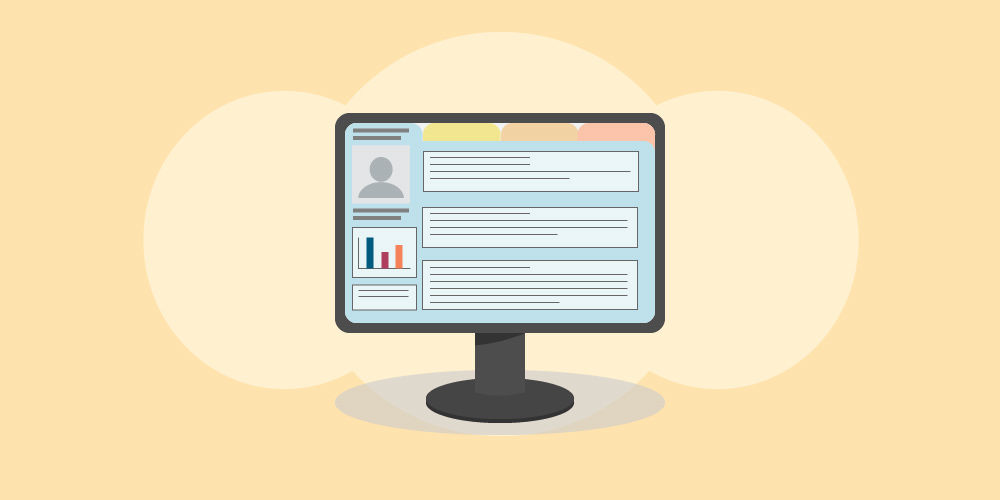
Click here to learn how dermatologists Chris Hull and Mark Eliason are like Bono and The Edge.
A Patient's Perspective—by Mari Ransco
Like many of us, I’m a patient at University of Utah Health. I’m also the system’s director of patient experience, which makes me particularly aware of the deep commitment and hard work it takes to provide compassionate and safe care—every day for every patient.
I’ve had the good fortune to receive care from an expert, Chris Hull. Dr. Hull is skilled, thoughtful, and incredibly responsive. He and his team respond to my MyChart messages rapidly, provide my results, schedule my appointments—it feels seamless.
I asked him: how do you balance the work of Epic with personalized patient care? His lessons for creating seamless care for patients include room for dialogue with your colleagues, support from the department and the Epic team, and changed expectations for how you spend your time.
Chris Hull shares three things that made Epic easier
’ve been one of the most vocal critics of Epic, so when I received an email from Dr. Bhupendra Patel saying that he’d heard rumors that I loved Epic, I almost had a heart attack! I had to clarify that I had not said that—but I have learned to like it.
1. Room for dialogue
When we started using Epic in our clinics, I probably led the complaining. It consumed every single faculty meeting we had for nearly two years. Now, it doesn’t. It’s important to recognize that even though you might hate Epic, you can learn to hate it less—and sometimes even appreciate what it provides. I'm one of those people.
We talked a lot about how Epic affected the way that we delivered care. I don't think physicians are necessarily great at adapting to new things, myself included. Ultimately, we wanted patients to feel that same level of efficiency. As a department, we spent a lot of time making sure Epic wouldn’t affect patient care, staff engagement, or provider flow. We wanted patients to feel like nothing had changed.
What I Like About Epic
- Everything (pathology, labs, notes) in one place
- Photographs to monitor progress of treatment
- Maps of skin to document biopsy sites
- Ability to prescribe electronically
- Communication about care with other providers
2. Improving with the support of our department and the system
To take on Epic, we had to change our entire clinic model. There were so many different items we had to change in order to maintain efficiency and focus on the patient. We had to develop a process for managing MyChart messages. To accomplish all of this, we had to increase our medical staff to adapt to Epic, and that comes with some investment by the department.
We’ve been focused on analysis of Epic efficiency. Those who perform well have helped those who are under-performing to bring them up to speed. We've talked to other groups, like ophthalmology. I've spoken at Epic meetings and learned from other providers about what they're doing. We’re always looking for ways to improve.
In order to do well with any EMR, you must have a great team behind you. Medical assistants, administrative assistants, and so many others that people and patients don’t recognize help on the back end.
The Epic team at Utah has done a lot to make this work as easy as possible. Howard Weeks, Travis Gregory, and the entire Epic team have offered a lot of help. They are all open to helping us troubleshoot problems and navigate the various challenges created by an EMR.
3. How I balance my day
I see around 35 patients a day, four days a week. Most of that time, I'm not actually looking at Epic, except for a glance at meds or allergies. I try to close my charts at lunch and after clinic while managing results in between. I purposely don't sit in front of the computer when I'm in an exam room. Epic is available if I need it, but personally, I want to be focused entirely on the patient I'm seeing at that time. Most providers feel that way.
I have become much more efficient over the years. Initially, I felt like half my life was spent communicating with Epic, when of course I’d have rather spent that time communicating with my family or friends. Now I spend a lot less time in Epic than I used to on nights and weekends. I do still have to stay up with it or else I fall behind. As much I’d love to contact every person on the phone with every result, I’ve handed some of those responsibilities to my team.
It’s harder to separate myself from work now, although that’s a double-edged sword. It’s really important in any occupation to take a break, but I like having the ability to log into Epic at home because it gives me a chance to step back, think about something, and then go back and work on it later when I’m not distracted in clinic. Over time, I've adapted to Epic and gotten better with it. Now there are so many things I wouldn’t want to give up.
Chris Hull
University of Utah Health’s director of patient experience Mari Ransco examines the pandemic patient experience through the lens of the 5 Elements: U of U Health’s qualitative model for delivering an exceptional patient experience.
Chronic conditions do not pause during a pandemic. When faced with delaying the care of over 1,000 patients with neurological conditions, Susan Baggaley, Neurology Vice Chair and Ambulatory Chief Value Officer, and Vivek Reddy, Neurology Vice Chair and Inpatient Chief Value Officer, rapidly developed a new virtual visit workflow.
What do patients want? University of Utah Health’s patient experience team reveals what fifteen years of evolving qualitative analysis of hundreds of thousands of patient voices have taught us.
